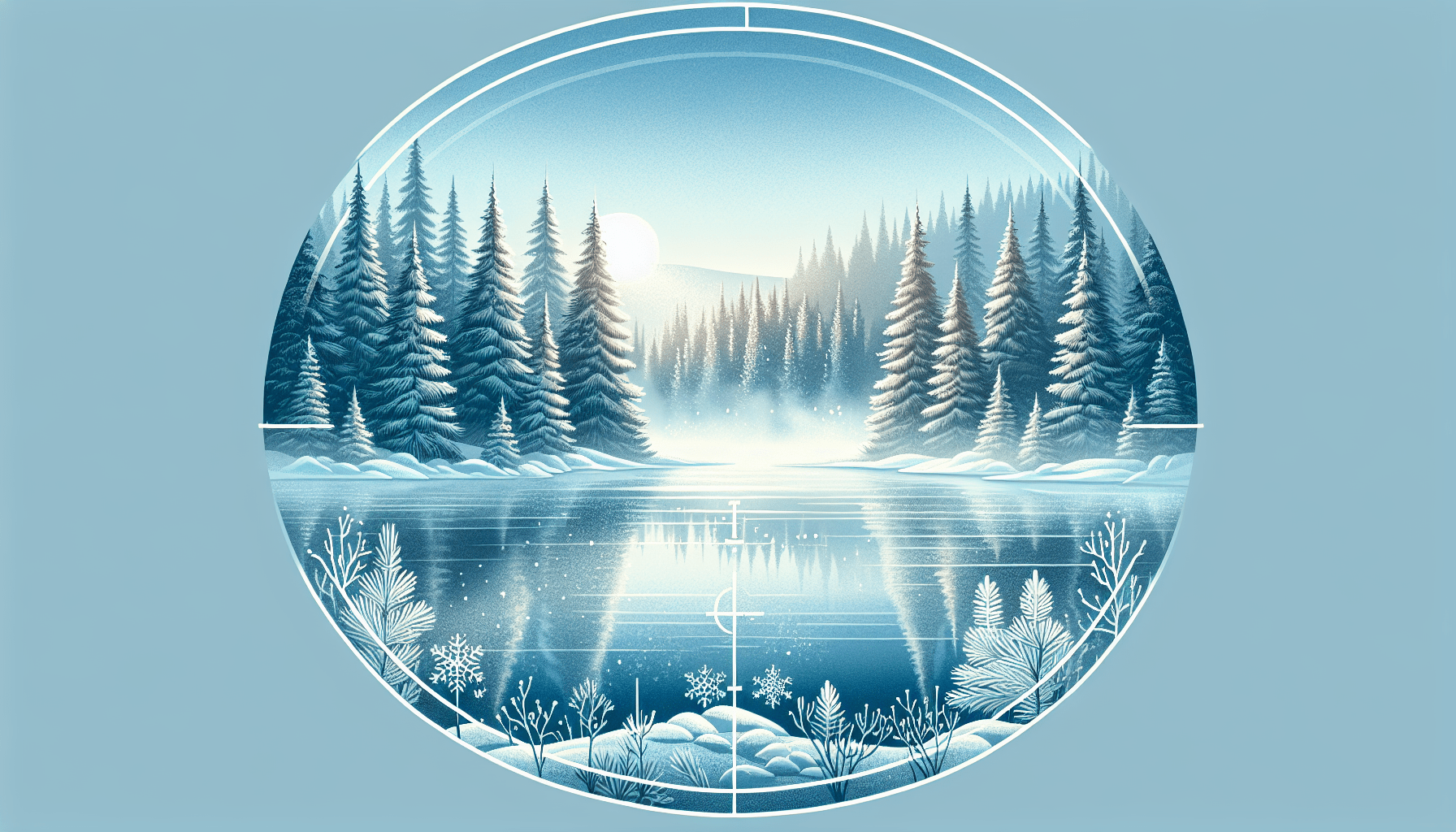Have you ever wondered what happens inside your body when you immerse yourself in cold water? It’s an intriguing journey into the world of biology, where the endocrine system is a central player. This article will guide you through understanding how cold water impacts this vital system of glands and hormones that orchestrate almost every function in your body. Let’s unravel this mystery together.

Understanding The Endocrine System
Before we dive into the specifics of how cold water interacts with your endocrine system, it’s important to have a basic understanding of what this system is and does. The endocrine system is essentially your body’s communication network involving hormones, which are chemical messengers that travel through your bloodstream to various organs and tissues to regulate processes such as metabolism, growth, and mood.
Key Components of the Endocrine System
The endocrine system comprises several glands, each with specific functions:
- Hypothalamus: This is the control center which produces hormones that stimulate or inhibit hormone production in the pituitary gland.
- Pituitary Gland: Often termed the ‘master gland,’ it controls other glands and many bodily functions including growth.
- Thyroid Gland: Regulates metabolism, energy, and growth.
- Adrenal Glands: Produce hormones such as adrenaline and cortisol, managing stress response and metabolism.
- Pancreas: Produces insulin and glucagon, regulating blood sugar.
- Gonads (Ovaries and Testes): Produce sex hormones, affecting reproduction and secondary sexual characteristics.
Take a closer look at this table for a snapshot view:
| Gland | Hormone Released | Main Function |
|---|---|---|
| Hypothalamus | Thyrotropin-releasing hormone | Regulates pituitary hormone production |
| Pituitary | Growth hormone | Stimulates growth and cell reproduction |
| Thyroid | Thyroxine (T4), Triiodothyronine (T3) | Regulates metabolism |
| Adrenal | Adrenaline, Cortisol | Fight or flight response, stress regulation |
| Pancreas | Insulin, Glucagon | Blood sugar regulation |
| Ovaries/Testes | Estrogen, Testosterone | Reproductive functions |
This intricate system operates with precision, but external factors like cold water can influence its performance in fascinating ways.
The Physiology of Cold Water Exposure
When you expose yourself to cold water, your body’s initial response is one of stress. This is when the endocrine system jumps into action. Understanding the physiological effects of cold exposure helps to appreciate how it ultimately affects hormonal balance and the entire endocrine system.
Initial Shock and Hormonal Response
The sudden impact of cold water causes an involuntary gasp reflex and rapid breathing, as your body initially panics and attempts to generate heat. Here’s where your adrenal glands come into play, releasing stress hormones like adrenaline and cortisol. These hormones prime your body for survival by increasing heart rate and energy supply.
Moreover, cold exposure stimulates the sympathetic nervous system. This aspect of your nervous system kicks off a cascade of hormonal responses to maintain homeostasis.
Brown Fat Activation
Another fascinating aspect of cold water exposure is the activation of brown adipose tissue or brown fat. Unlike regular white fat, brown fat generates heat by burning calories, thanks to a process called thermogenesis. This heat production is regulated by norepinephrine, a hormone released by the adrenal glands. Brown fat activation is particularly beneficial as it boosts your metabolism.

Cold Water and Specific Hormonal Responses
The long-term effects of regular exposure to cold water involve significant changes in several hormones, which can have both positive and potentially negative outcomes.
Adrenaline and Cortisol
Your adrenal glands are responsible for increasing adrenaline in your system during cold immersion. This hormone increases your heart rate and blood pressure while dilating air passages to ensure adequate oxygenation when experiencing cold stress. It’s like a quick burst of energy that helps your body tackle the shock.
Aside from adrenaline, cortisol also plays a critical role. Known as the ‘stress hormone,’ cortisol helps in maintaining essential bodily functions like controlling blood sugar levels and reducing inflammation. However, chronic stress or overexposure to cold can lead to excessive cortisol, which may harm your health, impacting weight and even mood.
Thyroid Hormones
Frequent exposure to cold water has been shown to potentially increase levels of thyroid hormones. These hormones can enhance your metabolic rate, helping to burn calories more efficiently. A revved-up metabolism aids in not only maintaining body warmth but may also contribute to weight management.
Insulin Sensitivity and Blood Sugar Regulation
Cold water acclimatization can improve insulin sensitivity, reducing insulin resistance – a major factor in metabolic diseases like Type 2 diabetes. This means your body becomes more efficient at absorbing glucose from your bloodstream, providing a sustained energy release without the dreaded sugar crashes. Improved insulin sensitivity has myriad health benefits, including diminished risk factors for metabolic syndromes.
Endorphin and Dopamine Release
Cold water swimming or baths can significantly boost your mood by triggering the release of feel-good hormones like endorphins and dopamine. This is why many people report feeling euphoric or a sense of well-being after a swim in chilly waters. These neurotransmitters act as natural painkillers and mood enhancers, potentially alleviating symptoms of depression and anxiety.
Potential Risks and Considerations
While there are many potential benefits linked to the effect of cold water on the endocrine system, it’s crucial not to overlook the risks and how to mitigate them.
Hypothermia and Cold Shock
One of the main dangers of cold water immersion is hypothermia, a condition where your body loses heat faster than it can produce it. Knowing your limits and gradually acclimatizing to cold water is vital to avoid the risk of hypothermia.
The initial cold shock, as discussed earlier, can be unsettling and poses risks to those with underlying cardiovascular conditions. A sudden shock can increase heart rate and blood pressure excessively, triggering cardiac events. It’s recommended to consult a healthcare professional before engaging in regular cold water practices if any health concerns exist.
Cortisol Dysregulation
Long-term or excessive cold water exposure may lead to dysregulation of cortisol, which could, in turn, lead to adrenal fatigue. Symptoms like fatigue, digestive issues, and mood swings might occur if your body is persistently pushed into a stress-response state without adequate recovery periods.
Listen to Your Body
Understanding how your body reacts and adapts to cold water over time will help you reap the benefits while minimizing risks. Start with short exposures and gradually increase the duration as your tolerance builds. Importantly, ensure you’re adequately warmed up post-exposure to help your body return to a balanced state.
Practical Tips for Safe Cold Water Immersion
If you’re considering incorporating cold water exposure into your routine, here are a few friendly tips to ensure a safe and beneficial experience:
- Start slowly: Begin with cool showers or baths before transitioning to colder temperatures.
- Consistency is key: Regular, moderate exposures are more beneficial than sporadic, intense sessions.
- Monitor your body: Pay attention to how your body responds, and seek medical advice if you feel unwell.
- Warm up effectively: Post-immersion, gradually increasing your body’s temperature with warm clothing or a warm drink is essential.
By following these measures, you can enjoy the potential benefits of cold water while keeping the risks at bay.
In Conclusion
The interaction between cold water and the endocrine system is a testament to your body’s remarkable ability to adapt and thrive under various conditions. From boosting your mood and metabolism to improving insulin sensitivity, cold water has surprising impacts on your hormones, potentially promoting better health and well-being.
However, remember that balance is key. As beneficial as cold water immersion can be, it’s just as important to recognize and heed the signals your body gives you. By doing so, you equip yourself not just to withstand, but flourish, thanks to the transformative powers of cold water on the endocrine system.

